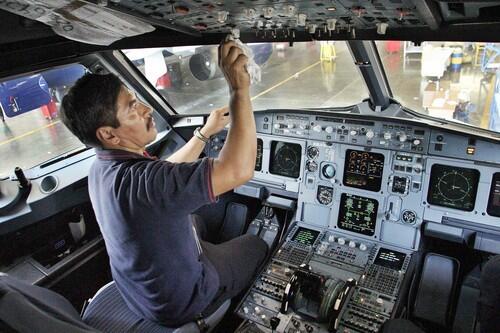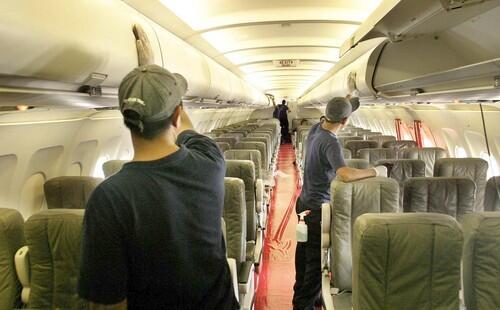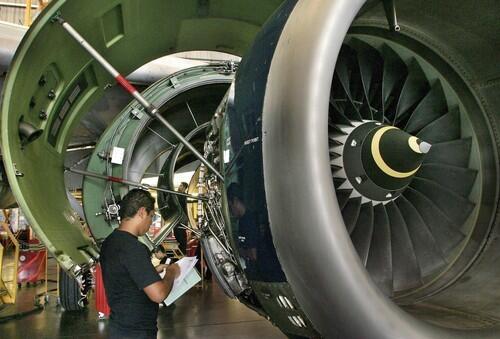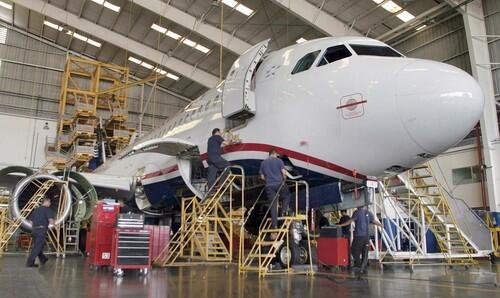
Nestor Sanchez, 48, works in the cockpit of an airliner. Aeroman, which has 1,300 employees, operates a large facility outside the capital of San Salvador at El Salvador International Airport. (Luis Galdamez / For The Times)

Aeroman’s El Salvador aircraft repair facility is one of more than 700 in about 70 foreign countries that have been certified by the U.S. Federal Aviation Administration. (Luis Galdamez / For The Times)

An Aeroman mechanic, paperwork in hand, inspects a jet engine. Company employees must be able to fill out FAA-required documentation in English. (Luis Galdamez / For The Times)








